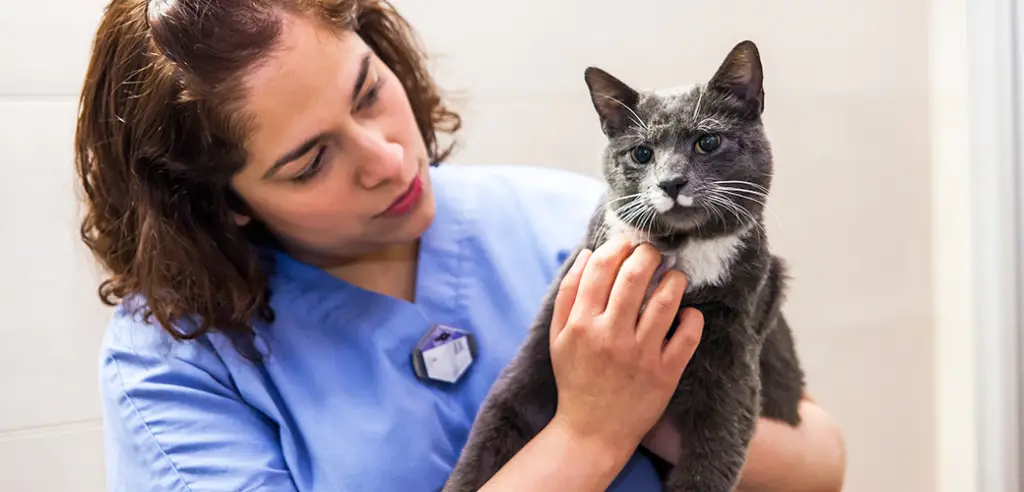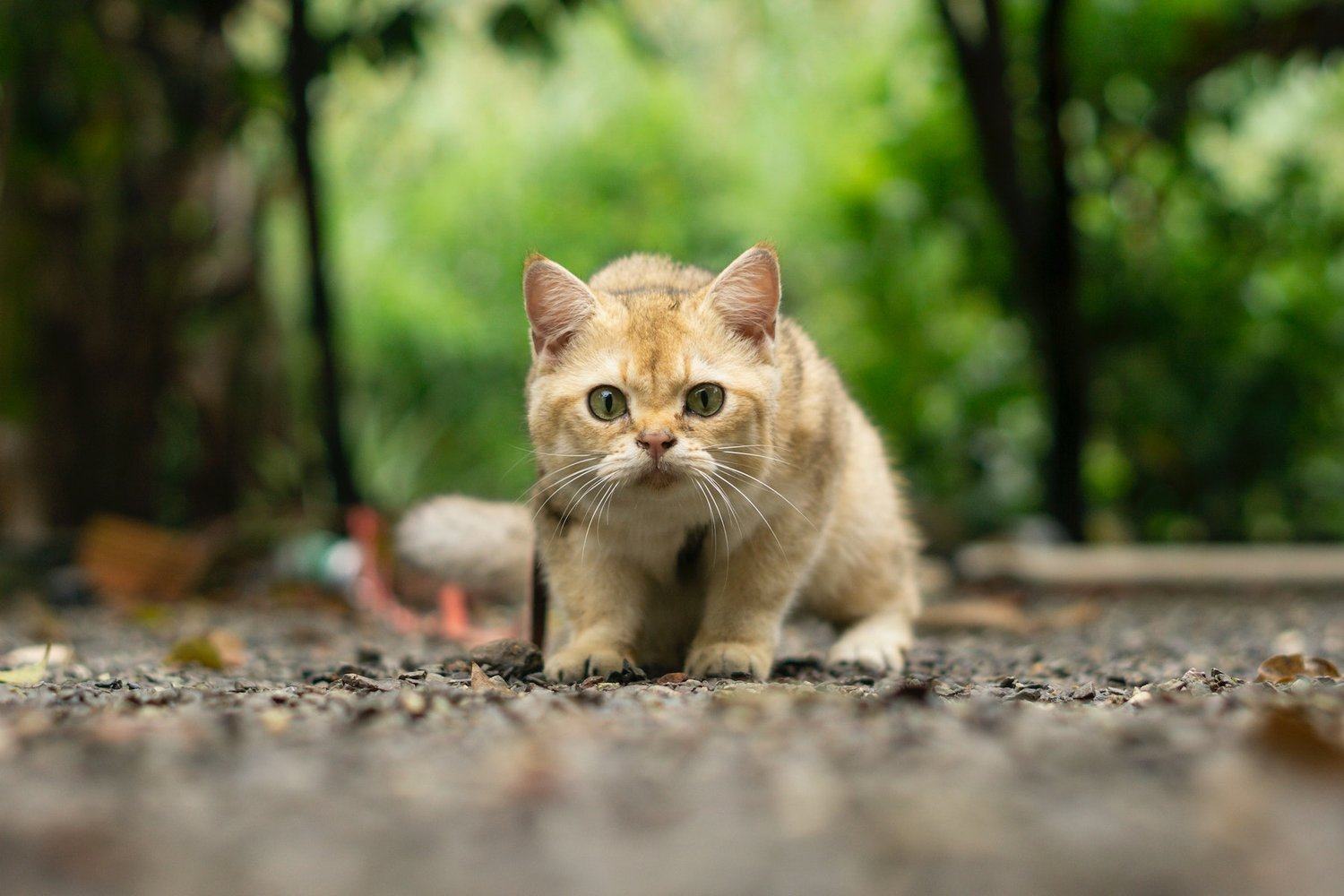Did you know that approximately 30% of cats suffer from hairballs in cats at least once a week? If your feline friend is one of them, you’re probably looking for ways to prevent and treat this common issue.
Hairballs occur when cats groom themselves and swallow loose fur, which then accumulates in their digestive system. Fortunately, there are several steps you can take to help your cat avoid the discomfort and potential health risks associated with hairballs.
Regular grooming plays a vital role in preventing hairballs by removing loose fur before it’s ingested. Additionally, providing a healthy diet rich in fiber can promote regular bowel movements and minimize the formation of hairballs. Encouraging hydration and promoting digestive health through specialized diets or supplements can also make a significant difference.
In some cases, using over-the-counter hairball remedies may be necessary to aid in the removal of existing hairballs. However, if your cat’s symptoms persist or worsen, consulting with a veterinarian is crucial for proper diagnosis and treatment options.
By following these preventative measures and seeking appropriate care when needed, you can help keep your beloved feline companion happy and free from bothersome hairballs.
Understand the Causes of Hairballs in Cats
Alright, let’s dig into the hairy situation and understand what causes those pesky hairballs in our beloved feline friends.
Hairballs are a common issue among cats, especially during shedding season when they tend to lose more fur. The excessive grooming that cats engage in during this time is the primary culprit behind the formation of hairballs. Cats have rough tongues that help them clean their fur, but this also leads to them swallowing loose hairs.
These hairs then accumulate in their stomachs and form clumps known as hairballs. To prevent this uncomfortable condition, it’s crucial to groom your cat regularly. By brushing your cat’s coat frequently, you can remove loose hairs before they are ingested. Regular grooming not only reduces the amount of hair your cat swallows but also helps keep their fur healthy and shiny.
Groom Your Cat Regularly
To keep your feline friend looking fresh and feeling fabulous, make sure you regularly groom them. Cat grooming is essential for maintaining their coat and preventing hairballs.
Brushing your cat’s fur helps to remove loose hair before it can be ingested, reducing the amount of hair they swallow during self-grooming. Use a brush or comb that’s suitable for your cat’s specific coat type to effectively remove any tangles or mats.
Additionally, regular grooming allows you to check for any skin issues or parasites that may need attention. By taking care of your cat’s fur through proper grooming techniques and cat hair care, you can greatly minimize the chances of them developing troublesome hairballs.
Transitioning into the next section about providing a healthy diet will ensure your cat stays happy and healthy without excessive hairball problems.
Provide a Healthy Diet
Nourish your feline companion with a well-balanced diet that’ll fuel their body and keep them purring with vitality. Proper cat nutrition is crucial when it comes to preventing hairballs.
Make sure their diet includes high-quality protein, essential fatty acids, and plenty of fiber. Protein helps maintain healthy skin and coat, while fatty acids promote a glossy fur that sheds less. Fiber aids in digestion and prevents the formation of hairballs in the first place.
Look for cat food specifically formulated for hairball prevention, or consider adding a small amount of canned pumpkin or psyllium husk to their meals as natural remedies.
Additionally, encourage hydration by providing fresh water at all times and incorporating wet food into their diet. This’ll help prevent dry skin and promote overall digestive health.
Transitioning into the next section about ‘encourage hydration,’ remember that keeping your feline friend hydrated is just as important as their diet choices.
Encourage Hydration
To encourage hydration in your cat and help prevent hairballs, it’s important to provide fresh water at all times.
Cats are more likely to drink water when it’s readily available and easily accessible.
Additionally, incorporating wet food into their diet can also increase their fluid intake.
Another option to consider is using a water fountain specifically designed for cats, as this can entice them to drink more due to the flowing water and appealing sound.
Fresh Water Availability
Ensuring that cats have access to an ample supply of fresh water throughout the day can help prevent and treat hairballs. Promoting water consumption in cats is essential as it helps in maintaining their overall health and well-being. Here are three benefits of sufficient water intake for your feline friend:
- Hydration: Adequate water consumption keeps your cat hydrated, which is crucial for healthy digestion and reducing the likelihood of hairball formation.
- Urinary Health: Drinking enough water helps flush out toxins from the urinary system, preventing urinary tract infections and crystal formation.
- Coat Health: Well-hydrated cats tend to have healthier skin and coats, minimizing excessive shedding and reducing the risk of ingesting loose fur.
By providing fresh water consistently, you can encourage your cat to drink more, aiding in hairball prevention.
Transitioning into the next section about wet food, incorporating moisture-rich options can further support your cat’s hydration needs.
Wet Food
With a tantalizing array of flavors and textures, wet food becomes a delectable feast that leaves your feline companion purring with delight. Not only does it satisfy their taste buds, but it also plays a crucial role in preventing and treating hairballs.
The moist texture of wet food helps to lubricate your cat’s digestive system, making it easier for them to pass any hair they may have ingested. Additionally, the high water content in wet food ensures that your cat stays hydrated, which is vital for maintaining healthy digestion and reducing the likelihood of hairball formation.
However, it’s important to remember that wet food should not be the sole solution. Regular brushing is key to removing loose hairs from your cat’s coat before they can be ingested. By combining the benefits of wet food with regular brushing, you can effectively minimize hairball issues in your beloved feline friend.
Now let’s move on to another method: water fountains…
Water Fountains
Water fountains provide a refreshing and stimulating way for our feline companions to stay hydrated and enjoy the sensation of flowing water. They offer several benefits for cats, including promoting hydration, preventing hairballs, and encouraging overall health.
There are different types of water fountains available in the market to suit your cat’s preferences. Catit Flower Fountain is a fountain that features a unique flower-shaped design that attracts cats to drink more water. PetSafe Drinkwell Platinum Pet Fountain entices cats to drink with its free-falling stream and keeps the water fresh with its carbon filter. Pioneer Pet Raindrop Design Stainless Steel Pet Fountain is made from durable stainless steel and provides clean and bacteria-free water for your cat. Cat Mate Pet Fountain is a multi-level fountain that offers different drinking areas, ensuring that your cat stays hydrated.
Using a water fountain can help prevent hairballs by keeping your cat well-hydrated. It also promotes digestive health by aiding in digestion.
Promote Digestive Health
To keep your feline friend’s digestive system in top shape, it’s important to encourage a healthy gut. Promoting overall well-being and incorporating cat hair care tips can help prevent and treat hairballs.
One way to promote digestive health is by providing a balanced diet that includes high-quality food with essential nutrients. Ensure your cat stays hydrated by offering fresh water daily or even considering a water fountain, as mentioned earlier. Regular exercise is also crucial for maintaining a healthy digestive system. Encourage playtime with interactive toys to keep your cat active and aid digestion.
Additionally, consider adding fiber to their diet through specialized treats or supplements to assist in the natural passage of hair through their system. By promoting digestive health, you can effectively reduce the occurrence of hairballs in your cat.
Transitioning into the next section, let’s explore how to use hairball remedies for further prevention and treatment options without writing ‘step’.
Use Hairball Remedies
One effective way for feline owners to address the issue of hairballs is by utilizing hairball remedies. Hairball prevention is essential in maintaining a healthy digestive system for your cat.
There are various natural remedies available that can help reduce the occurrence of hairballs. These remedies typically come in the form of specialized cat treats, gels, or supplements that aid in lubricating the digestive tract, making it easier for hair to pass through.
Some natural ingredients commonly found in these remedies include pumpkin, fiber, and omega-3 fatty acids. These ingredients promote healthy digestion and assist in preventing the formation of hairballs.
By incorporating these hairball remedies into your cat’s routine, you can significantly reduce their discomfort and prevent any potential complications from occurring. To further ensure your cat’s well-being, it’s important to consult with a veterinarian on proper usage and dosage recommendations for these remedies.
Consult with a Veterinarian

Make sure you schedule a consultation with a veterinarian to ensure your furry friend stays healthy and happy. Consulting with a veterinarian is essential when it comes to preventing and treating hairballs in cats. They can provide valuable veterinary advice and professional guidance tailored specifically to your cat’s needs.
A vet will be able to assess your cat’s overall health, diet, and grooming habits to determine the best course of action. They may recommend dietary changes or prescribe hairball remedies that are safe and effective for your feline companion. Additionally, they can teach you techniques on how to properly groom your cat to minimize shedding and reduce the likelihood of hairballs forming.
By seeking veterinary expertise, you can address any concerns about hairballs and ensure the well-being of your beloved pet.
Frequently Asked Questions
Can I use human hairball remedies on my cat?
No, you shouldn’t use human hairball remedies on your cat. They are formulated specifically for humans and may contain ingredients that are harmful to cats. Stick to safe and effective cat hairball remedies instead.
How often should I groom my long-haired cat to prevent hairballs?
To prevent hairballs in your long-haired cat, groom them at least once a week. Regular brushing helps remove loose hair and prevents it from being ingested. This reduces the chances of hairballs forming in their digestive system.
Are there any specific foods that can help prevent hairballs in cats?
Looking for natural remedies for hairballs in cats? Wondering if there are specific foods that can help prevent them? Well, you’re in luck! Let’s explore some options that can keep those pesky hairballs at bay.
Can hairballs cause serious health issues in cats?
Hairballs can cause serious health issues in cats. Complications may include gastrointestinal blockages, vomiting, and discomfort. If left untreated, long-term effects of hairballs can lead to more severe conditions that require medical intervention.
Is it normal for a cat to have hairballs frequently?
It is not normal for a cat to have hairballs frequently. However, there are cat hairball remedies and natural hairball prevention methods available to help reduce the occurrence of hairballs in your feline friend.
Conclusion
In conclusion, preventing and treating hairballs in your cat is essential for their overall health and well-being. By understanding the causes of hairballs, regularly grooming your cat, providing a healthy diet, encouraging hydration, promoting digestive health, using hairball remedies, and consulting with a veterinarian when needed, you can effectively manage this common issue.
Did you know that according to a recent survey by the American Association of Feline Practitioners, 65% of cats experience hairball-related issues? Taking proactive measures will not only prevent discomfort for your feline friend but also ensure a happier and healthier life.
Read more:
